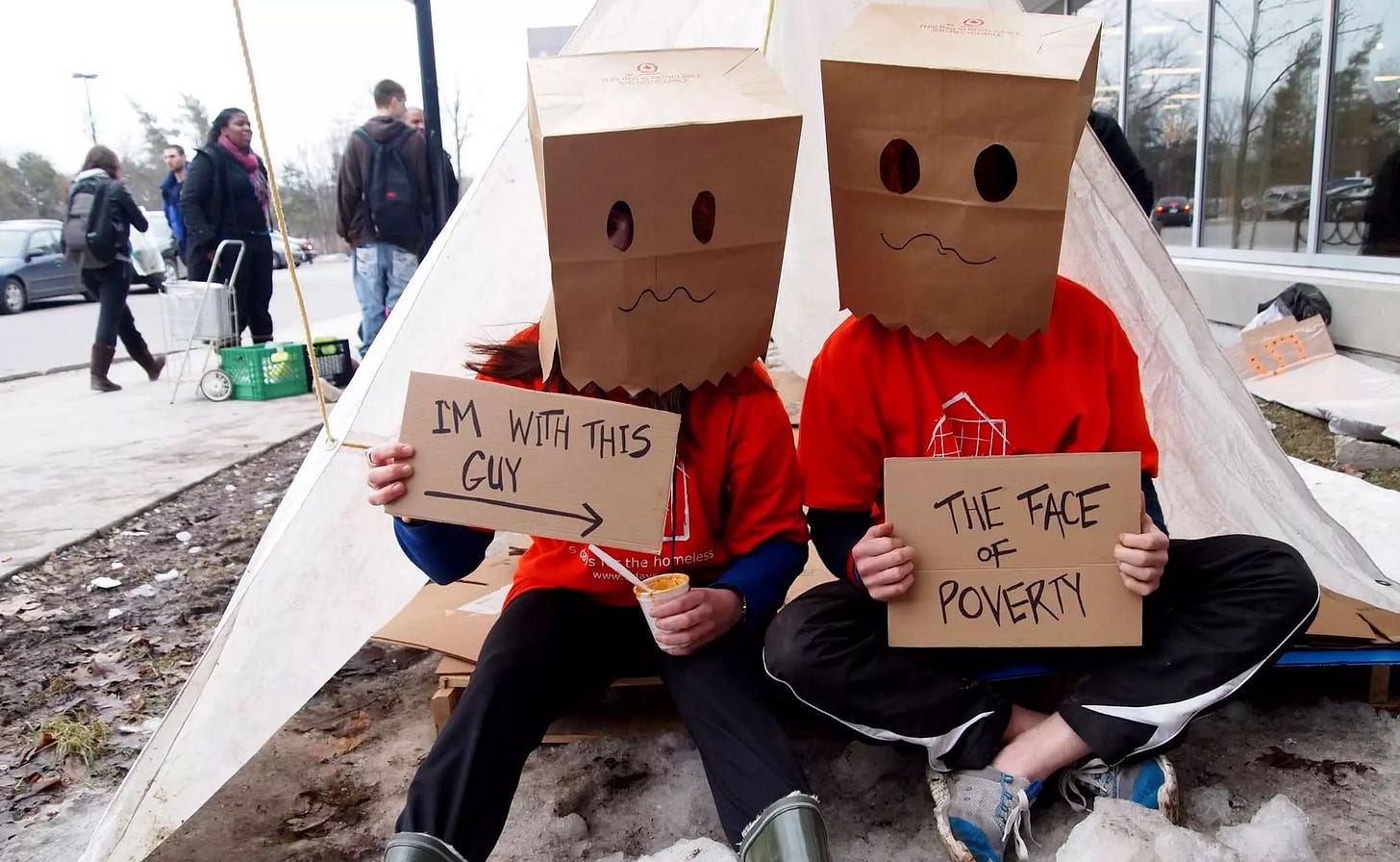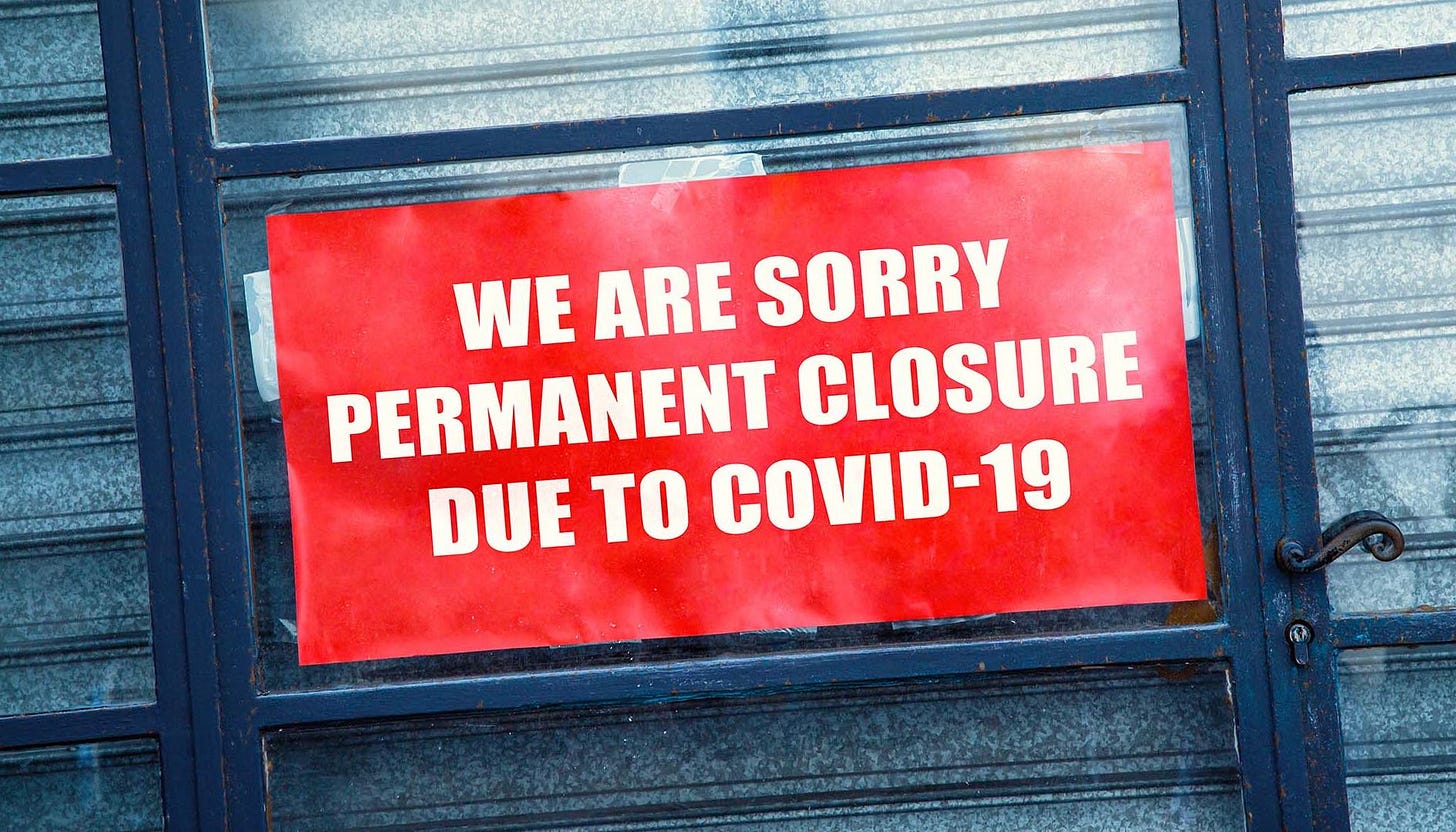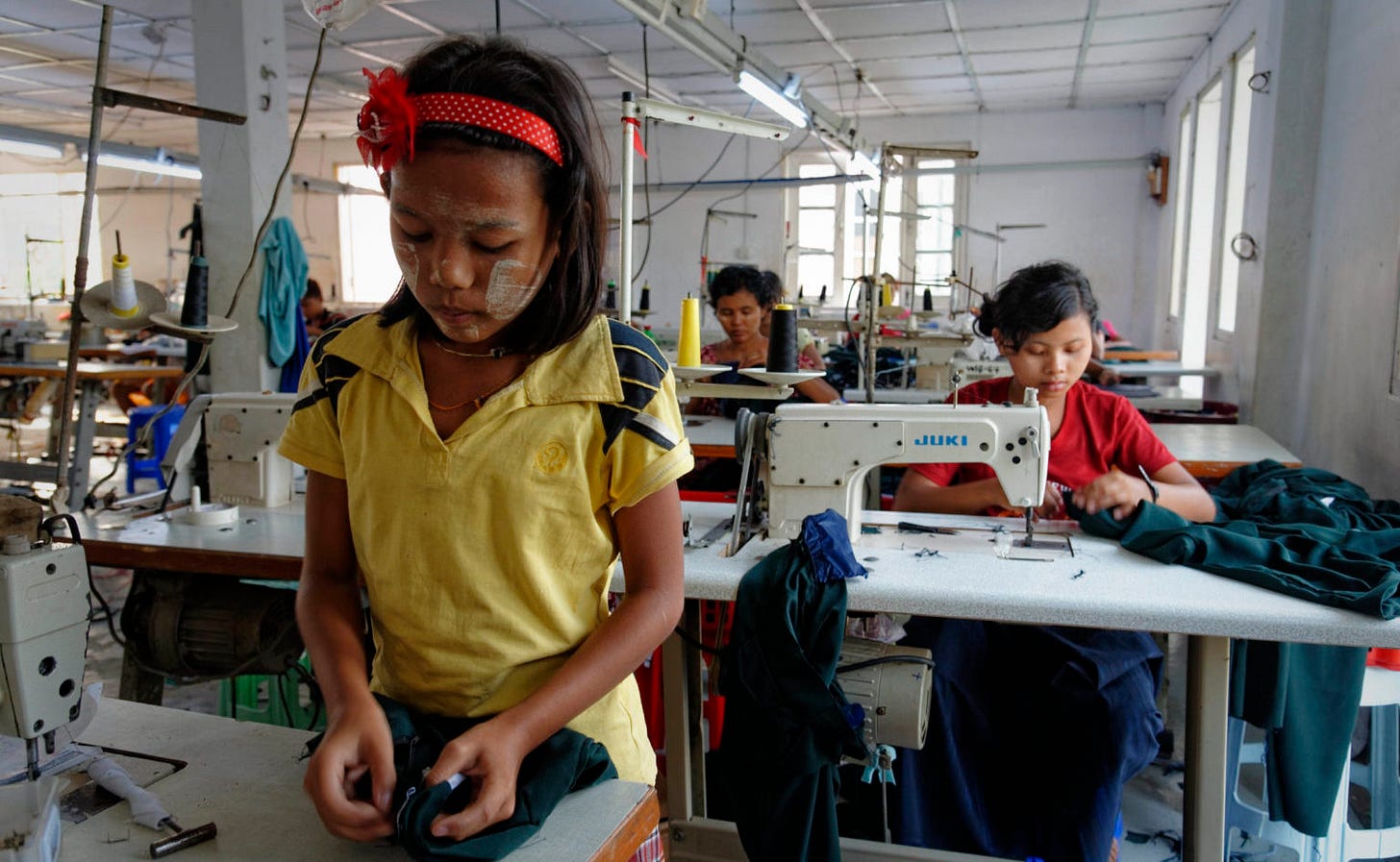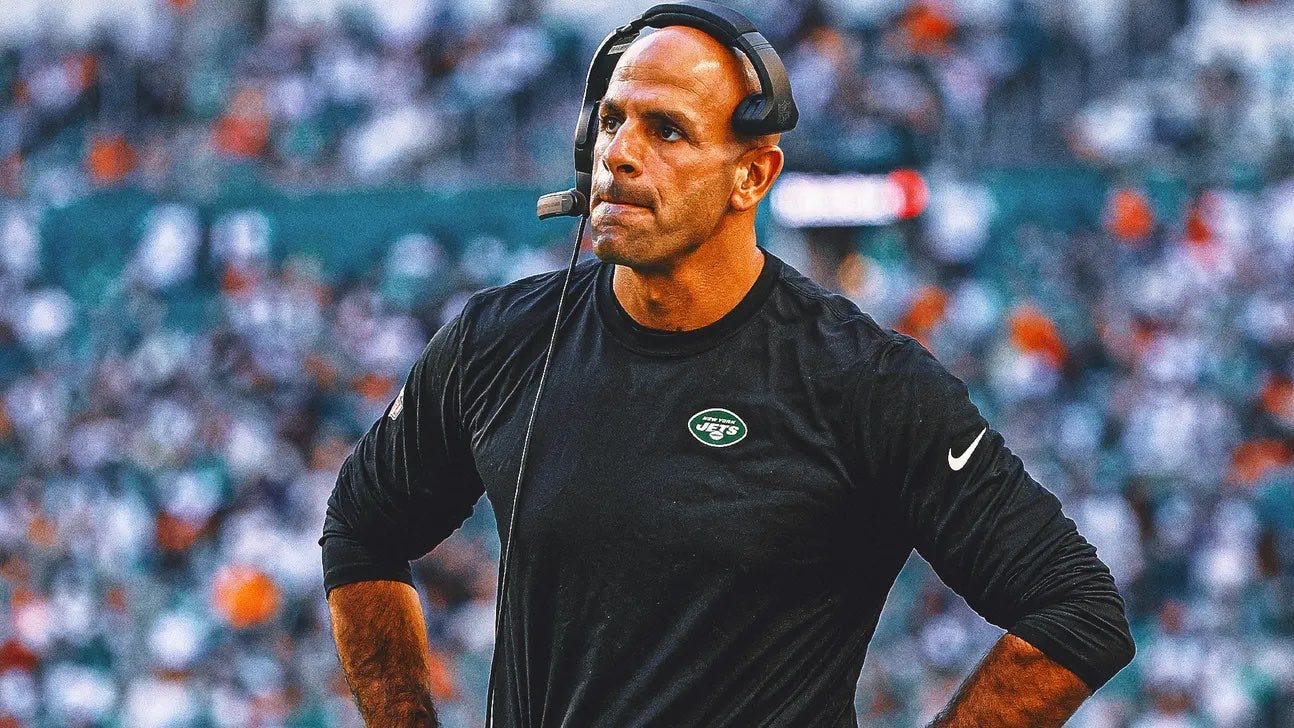Good morning, It’s Wednesday, October 9th. In today’s news, National Review reports that each province in Canada trails behind every US state in median earnings, Dozens of states sue TikTok for addictive features, Alberta businesses eye class action lawsuit over government for COVID losses, Toronto med school reserves 75% of its enrollment for DEI admissions, and much more.
First time reading the daily blend? Sign up here.
National Review: Canada is Poor
Ten years ago, Canada was widely viewed as an economic success for the middle class, often praised in comparison to the United States. Commentators cited higher incomes, lower inequality, and a stronger social safety net. However, recent data paints a starkly different picture. Every Canadian province now lags behind every US state in terms of median earnings, a trend highlighted in a new report from the Fraser Institute, a Canadian free-market think tank.
Key Findings from the Report:
The Fraser Institute report compared median earnings per person between the 50 US states and Canada’s 10 provinces from 2010 to 2022, measured in constant Canadian dollars. The findings are clear: Canadian provinces now rank at the bottom, with the highest-earning province, Alberta, placing 51st behind all 50 US states. Between 2010 and 2022, median earnings in most US states grew faster than those in Canadian provinces, with British Columbia being the only Canadian province to rank in the top half of jurisdictions for earnings growth.
The Canadian Decline:
The report attributes the stagnation in Canadian provinces to a variety of factors, including slower economic growth, weak productivity, and a heavier reliance on natural resources.
None of the lower-ranking Canadian provinces improved their relative position by more than one spot during this period.
The Shift Since 2014:
In 2014, reports celebrated Canada’s middle-class triumph. The New York Times and other outlets claimed that Canada’s middle-class incomes had caught up to the US, attributing the success to strong labour unions, government healthcare, lower income inequality, and rising education levels. However, 2014 was an anomaly. As noted by American Enterprise Institute's Scott Winship, 2014 marked the only year when US and Canadian median incomes were on par. By 2015, US income growth surged ahead and has since widened the gap.
This divergence coincided with the election of Prime Minister Justin Trudeau and the Liberal Party, who have remained in power since 2015. While it’s difficult to directly link political leadership to these economic outcomes, Canada’s decline relative to the US has been pronounced over this period. The report’s findings come at a time when the Conservative Party of Canada, led by Pierre Poilievre, is gaining significant political traction. Poilievre is campaigning on promises of free markets, fiscal responsibility, tax reform, and reducing bureaucratic hurdles, claiming that these are necessary to reverse Canada's economic decline.
Broader Implications:
While Canada was once seen as a model for middle-class prosperity, it now faces growing criticism for its economic policies, with free-market advocates calling for a shift toward limited government and less intervention.
The report suggests that without significant policy changes, Canada will continue to fall behind the US and other developed nations, not only in top-performing sectors but also in middle-class incomes. More
Dozens of States Sue TikTok for Addictive Features
On October 8th, a coalition of 14 states, led by California Attorney General Rob Bonta and New York Attorney General Letitia James, announced new lawsuits against TikTok, accusing the platform of exploiting users for profit and contributing to the youth mental health crisis. This coalition joins other states that had previously filed similar lawsuits, bringing the total to 24 states targeting TikTok for its practices. The lawsuits were filed in Santa Clara County Superior Court and other jurisdictions.
The lawsuits claim that TikTok’s business model deliberately fosters social media addiction among minors by using features that manipulate engagement and keep users on the platform for extended periods. These practices, according to the lawsuits, were designed to maximize user time and increase revenue from targeted advertising.
The specific features cited in the lawsuits include:
Beauty Filters: Allegedly promote unrealistic beauty standards and harm young users' self-esteem, leading to negative body image issues.
Autoplay and Infinite Scroll: Designed to keep users continuously engaged, making it hard for them to disengage and leading to compulsive use.
Time-Sensitive Content: Features like TikTok Stories and TikTok Live are said to exploit "fear of missing out" (FOMO), encouraging users to check the platform frequently.
Push Notifications: Sometimes use fake or manipulative notifications to draw users back to the app.
Social Validation: The emphasis on likes and comments is said to influence young users to seek validation, contributing to compulsive usage and negatively impacting their mental health.
Attorney General Bonta stated that TikTok intentionally targets children, knowing they lack the capacity to set healthy boundaries around addictive content. He emphasized that TikTok’s corporate profits come at the cost of young people's mental well-being.
TikTok, however, strongly denies the allegations. A spokesperson from the company said they "strongly disagree" with the claims, which they believe are inaccurate and misleading. TikTok cited its efforts to safeguard teen users, including implementing screen time limits, family pairing options, and privacy settings by default for minors under 16. The company also expressed disappointment that the attorneys general chose legal action rather than working collaboratively to find solutions to industry-wide challenges.
This wave of lawsuits comes on the heels of similar actions against other tech giants. In October 2023, California joined a federal lawsuit against Meta, accusing the company of designing features to addict young users. TikTok now faces mounting legal pressure from states aiming to hold the platform accountable for its impact on youth mental health and online behavior. More
Pandemic Payback: Alberta Businesses Eye Class Action Against Government Over COVID Losses
Business owners in Alberta who suffered financial losses due to pandemic closures may soon be allowed to proceed with a class action lawsuit against the provincial government. The lawsuit seeks damages related to public health orders imposed during COVID-19, with costs potentially covered by taxpayers, including the plaintiffs themselves.
Justice Feasby presided over the class action certification hearing. The court reviewed whether Alberta business owners, restricted by health orders from 2020 to 2022, can sue the Alberta government as a collective. The lawsuit, initially filed by Rath & Company in February 2024, is led by two plaintiffs: Rebecca Ingram, a gym owner, and Christopher Scott, owner of the Whistle Stop Café. Both claim that public health orders under former Chief Medical Officer Deena Hinshaw caused them substantial financial losses.
While the Alberta government conceded that Ingram could represent the plaintiffs, it questioned Scott’s suitability due to his defiance of public health orders and financial support through public donations. The government argued that Scott’s circumstances did not reflect the broader class, but the plaintiffs’ lawyer maintained that the suit could proceed with Ingram alone as the representative.
The plaintiffs argued that the public health orders exceeded legal authority, seeking compensation for economic damages. Alberta’s legal team defended the orders, claiming they were based on scientific advice and enforced by Alberta Health Services. They also pointed out the diversity of businesses involved, arguing that individual assessments of damages would be more appropriate.
Justice Feasby acknowledged the complexity of the case and expects to reach a decision by December 1st. If certified, the class action will automatically include all affected business owners unless they opt out. Any damages awarded would be paid by taxpayers. More
Toronto Med School Reserves 75% of Enrollment for DEI Admissions
Toronto Metropolitan University’s new medical school has announced it will prioritize admissions for Black, Indigenous, LGBT, and other "equity-deserving" groups over traditional merit-based criteria. The school aims to foster inclusivity by reserving the majority of spots for these groups, including those from disadvantaged backgrounds. Additionally, the school has eliminated the MCAT requirement, opting for a holistic admissions process to assess students' academic abilities and personal qualities. The program's goal is to train physicians who reflect and meet the needs of diverse communities. More
X Cleared to Return in Brazil After Musk Bows to Judge’s Demands
Brazil’s Supreme Court has lifted the ban on X (formerly Twitter) after Elon Musk complied with its demands. Musk had initially resisted, criticizing Brazil’s regulations as censorship, but ultimately agreed to take down user accounts, including those of Bolsonaro supporters, and appoint a legal representative in Brazil. The ban was imposed after Musk's refusal to follow local laws, but X met all conditions, ending the months-long standoff. The clash highlighted tensions over free speech and regulation, with Musk accused of defying efforts to curb online hate and misinformation in Brazil. More
DHS Says FEMA Has No More Disaster Funds, While Report Shows Agency Sitting On $8 Billion
Homeland Security Secretary Alejandro Mayorkas is under fire for claiming FEMA lacks disaster funds just as a DHS Inspector General report revealed the agency is sitting on at least $8.3 billion in unspent funds from previous crises. This controversy emerged as Hurricane Milton, now a Category 5 storm, threatens Florida and the Southeast, still recovering from Hurricane Helene. Critics argue FEMA's mismanagement, including holding frozen funds for over a decade, worsens the disaster response. Meanwhile, Congressional Republicans are criticizing FEMA for diverting $1.1 billion to aid illegal migrants amidst ongoing crises. More
Dominican Republic Starts Mass Deportations of Haitians and Expels Nearly 11,000 in a Week
The Dominican Republic has deported or repatriated nearly 11,000 Haitians in the past week, fulfilling a pledge to remove up to 10,000 Haitians weekly due to what it calls an "excess" of immigrants. This comes amid worsening relations between the two countries as Haiti faces gang violence and poverty. Haitian officials condemned the deportations as discriminatory and called for dialogue, warning they will worsen Haiti’s crisis. Activists claim the deportations endanger lives, while Dominican officials maintain they are enforcing immigration laws and respecting human rights. More
Intelligence Officials Say US Adversaries Targeting Elections at All Levels with Disinformation
Intelligence officials warned that Russia, China, and smaller nations like Cuba are meddling in US elections beyond the presidential race, targeting House, Senate, and local contests. These countries are deploying disinformation campaigns to sway specific races, where they have national security interests. Russia seeks to undermine pro-Ukraine candidates, while China focuses on issues like Taiwan. Cuba likely supports candidates favoring better US-Cuba relations. More
Federal Court Orders Google to Open Android to Third-Party App Stores in Antitrust Case
A federal court has issued a permanent injunction requiring Google to make significant changes to its Android operating system and Google Play Store, allowing greater access for third-party app stores. The ruling stems from a lawsuit by Epic Games, where a jury found Google violated antitrust laws, including monopolization and unlawful restraint of trade. Key changes include lifting restrictions on app developers, preventing Google from enforcing Play Store exclusivity, and allowing alternative payment methods. Google plans to appeal, arguing the decision threatens user privacy and Android's competitive edge. The injunction takes effect Nov. 1 and will last three years. More
AstraZeneca and Gilead Sciences Merger Would be the Biggest in Pharma History
AstraZeneca, the UK’s largest drugmaker valued at $140 billion, has reportedly contacted US biopharmaceutical company Gilead Sciences, valued at approximately $96 billion, regarding a possible merger. This informal approach aimed to gauge Gilead’s interest in the deal. If successful, it would create the world’s largest pharmaceutical company by market value, surpassing the previous largest merger, Bristol-Myers Squibb's $87.6 billion acquisition of Celgene in November 2019. The merger could be motivated by both companies' roles in Covid-19 treatments, with Gilead’s antiviral Remdesivir expected to generate over $7 billion in annual sales by 2022, and AstraZeneca advancing in vaccine development. More
New Canadian Law Forces Corporations to Examine Supply Chains for Forced Labor, Revealing Alarming Results
Canada’s new Fighting Against Forced Labour and Child Labour in Supply Chains Act has revealed alarming risks within major companies' supply chains. Firms like Loblaws, Empire, and Lululemon have acknowledged forced labour and migrant worker exploitation, while Amazon admitted to reimbursing over 700 workers for recruitment fees in Saudi Arabia. The reports highlight forced labour risks are more widespread than expected, even within trusted brands, exposing significant gaps in global supply chains and the hidden exploitation of vulnerable workers.
Liberal MP John McKay says that, from what he has seen, about 38 percent of companies acknowledged there was some risk of forced labour in their supply chains. More
Scientists Find Deep-sea 'Jelly' Creatures Merged Into 'Single Entity' After Injury
A new study reveals that comb jellies (ctenophores) can fuse together when injured, forming a single entity with interconnected nervous systems and stomachs. Discovered accidentally by researchers at the University of Exeter, this adaptation allows the jellies to rapidly integrate their nerve cells and share food after merging. While they behave as one organism, they retain separate DNA and cannot pass on this trait. The phenomenon appears unique to comb jellies and may be rare in the wild due to the proximity required after injury. Researchers are now investigating whether another species, Bolinopsis mikado, can also fuse. More
Astronomers Just Found a Galaxy Way too Advanced for its Time
Astronomers have discovered an unexpectedly mature galaxy, REBELS-25, just 700 million years after the Big Bang, using the ALMA observatory. The galaxy, resembling the Milky Way with its rotating disk and potential spiral arms, challenges prior beliefs that galaxies in this early stage of the universe would be small and chaotic. Previously, scientists thought structures like these took billions of years to form. This discovery suggests galaxies evolved faster than once thought, reshaping our understanding of cosmic development. This finding adds to mounting evidence from the James Webb Telescope that our understanding of galaxy evolution needs revision. More
Jets Fire Head Coach Robert Saleh
The New York Jets have fired head coach Robert Saleh after a disappointing 2-3 start to the season, marking the first mid-season coaching change for owner Woody Johnson in 25 years. Despite Saleh's recent confidence in the team's ability to improve, the decision followed a 23-17 loss to Minnesota. Saleh, who had a record of 20-36 with the Jets, was replaced by defensive coordinator Jeff Ulbrich as interim coach. The Jets aim to break a 13-season playoff drought, and Ulbrich, who has been part of the team since 2021, will lead them against the Buffalo Bills next. More
Lawyer: Diddy's Celebrity Friends are Quietly Settling with Victims Ahead of Impending Lawsuits
Sean "Diddy" Combs' celebrity friends are reportedly settling with victims outside of court to avoid being implicated in lawsuits related to alleged sexual abuse at his parties, according to attorney Tony Buzbee, who represents over 100 accusers. Buzbee plans to take legal action against several unnamed celebrities who allegedly assisted Combs in covering up the abuse. He has filed a class-action suit against Combs, who faces sex trafficking charges, representing 120 victims, including minors. Combs' legal team has denied all allegations, asserting that he looks forward to proving his innocence in court. More
Indian Couple Scam Victims Out of $4 Million with “Israel-Made Time Machine” Capable of Reversing Aging - Rajeev Kumar Dubey and his wife Rashmi orchestrated a scam in Kanpur, India, convincing elderly people that they were aging prematurely due to pollution. They claimed to possess an "Israel-made time machine" but offered basic oxygen therapy to reverse aging. They even turned their scam into a pyramid scheme by promising clients free oxygen therapy sessions for every new customer they brought to their clinic.
On this day in 1941 US President Franklin D. Roosevelt approves an atomic program that would become the Manhattan Project.




















